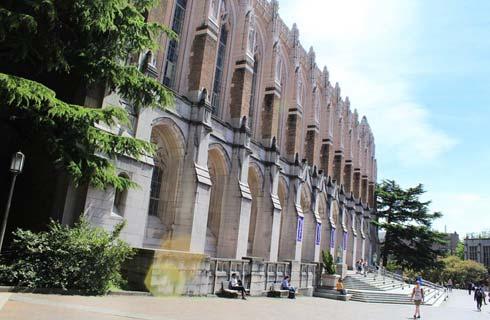Bachelor of Arts and Science - Aquaculture and Fisheries

学历文凭
Bachelor Degree

专业院系

开学时间

课程时长

课程学费

国际学生入学条件
IDP—雅思考试联合主办方

雅思考试总分
6.0
- 雅思总分:6
- 托福网考总分:80
- 托福笔试总分:160
- 其他语言考试:Pearson Test of English (PTE) Academic - Overall score of 50 with no communicative skills score below 42.
CRICOS代码:
申请截止日期: 请与IDP联系 以获取详细信息。
课程简介
相关申请
 预科
预科 奖学金
奖学金 实习机会
实习机会 在校学习
在校学习 跨境学习
跨境学习 校园授课-线上开始
校园授课-线上开始 在线/远程学习
在线/远程学习
开学时间&学费
学费信息仅供参考,请与IDP联系以获取详细信息
| 开学时间 | 时长 | 学费 | 地点 |
|---|
学校排名

世界排名201
数据源:
泰晤士高等教育世界大学排名
关于奥塔哥大学

成立于1869年的奥塔哥大学是新西兰第一所大学,拥有丰富而杰出的历史。奥塔哥大学在研究和教学方面享誉世界,在QS世界大学排名中位列全球前1%。奥塔哥大学在商业、健康科学和人文科学等领域提供了大量而多样化的学习选项。学生可以从200多门课程中选择。该大学在就业能力、国际化、教学和研究等方面均被QS评为五星。根据高等教育委员会(TEC)的教育表现指标,奥塔哥大学在学生表现和留存率方面也被评为新西兰第一。这强调了奥塔哥为学生提供的教育质量。该机构在新西兰各地都有校区,在达尼丁、惠灵顿、奥克兰、基督城和因弗卡吉尔都有校区。奥塔哥大学的学生群体也是多元化的,达尼丁校区85%以上的学生来自城市以外,全校有3000名国际学生入学。奥塔哥大学的学生享有良好的毕业成果,95%的学生在毕业后继续深造或就业。
本校相关课程
其他相关课程

理学研究生文凭(水产科学与技术)
 詹姆斯·库克大学
詹姆斯·库克大学泰晤士高等教育世界大学排名:361
学历文凭
Graduate Diploma
开学日期
课程费用总额


渔业政策硕士
 伍伦贡大学
伍伦贡大学泰晤士高等教育世界大学排名:247
学历文凭
Masters Degree (Coursework)
开学日期
课程费用总额


水产养殖三级证书
 西澳大利亚州职业技术学院
西澳大利亚州职业技术学院学历文凭
Certificate III
开学日期
课程费用总额


水产养殖文凭
 西澳大利亚州职业技术学院
西澳大利亚州职业技术学院学历文凭
Diploma
开学日期
课程费用总额


水产养殖二级证书
 西澳大利亚州职业技术学院
西澳大利亚州职业技术学院学历文凭
Certificate II
开学日期
课程费用总额


理学研究生文凭(渔业生物学与管理)
 詹姆斯·库克大学
詹姆斯·库克大学泰晤士高等教育世界大学排名:361
学历文凭
Graduate Diploma
开学日期
课程费用总额










 新西兰
新西兰





